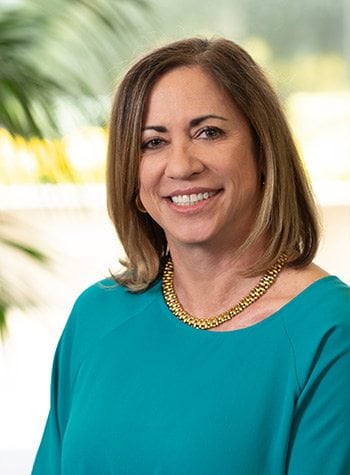Recruiting Young Ag Professionals
Two experienced recruiters share ways employers can stand above the competition for top ag talent.

A. Beth Hales, talent solutions director, AgCareers.com: The biggest challenges center around demand and awareness. While enrollment in agricultural programs is increasing, it isn’t anywhere close to the industry’s demand for talent. Less than 1% of total postsecondary enrollment is in the field of agriculture, while the number of job openings in our industry is nearly two times the number of qualified students. Awareness in general is the other challenge. Given the shortage of industry talent, we know we need to be reaching people with transferable skills and key interests. We should be educating people about the wide variety and scope of opportunities in agriculture. The general public isn’t routinely exposed to the fact that agricultural companies use truly innovative science and focus on developing sustainability strategies.
A. Robin Thomas, national commercial recruitment lead, Syngenta: Relocation is probably our No. 1 challenge because our hiring needs span across the entire country. Many of our roles require relocation, and career advancement sometimes involves moving to a different area. A second challenge for us is finding recruits with the soft skills needed to succeed in today’s market. Those skills include work ethic, leadership, teamwork and problem-solving. Students from institutions that prepare them for career fairs, networking events and job interviews stand out, especially when training starts at the freshman level.
Q. What tools and resources are available to help?

Experienced #ag recruiters share ways employers can stand above the rest.
As the strategic career success partner of the National FFA Organization, AgCareers.com has provided direct connections to real-time career opportunities within FFA’s AgExplorer.com. This site offers a career-finder assessment that helps students learn more about which careers in agriculture could be a fit, given their specific interests. Once students complete the assessment, the site will display the career profile information relevant to them, along with the related job opportunities with industry employers that are active on AgCareers.com.
click to tweet ![]()
A. Thomas: At Syngenta, our best resource is our people. Our corporate and field employees interact with young people through local and national FFA chapters, 4-H and other student organizations. We’re involved in classroom activities as well for high school and college students, and sometimes offer job-shadowing opportunities to those who are interested.
We also maintain a collegiate talent pipeline to build relationships with candidates over time with multiple touch points. We get to know the candidates better, they have a broader insight into our culture and values, and we both have a better opportunity to assess mutual fit before the student graduates.
Q. What unique benefits do younger employees bring to a business?“Younger employees … are typically very adept at finding new ways of working and bringing new ideas to the role and their team with energy and enthusiasm.”
A. Hales: There’s a steady revolution going on across the country today to join the agriculture advocacy conversation. I’ve seen many instances where younger employees have harnessed the power of social media to support the industry by telling their ag stories. This “agvocacy” spills over to help promote your company brand to potential future employees. Younger employees can also be hungry to innovate and make a difference, which typically means they aren’t bogged down by “the way it’s always been.”
A. Thomas: Younger employees bring diversity of thought with a different way of seeing situations and finding solutions. They are typically very adept at finding new ways of working and bringing new ideas to the role and their team with energy and enthusiasm. I look forward to seeing what the future holds, as we’re now hiring from Generation Z. This is the first generation of young people who’ve grown up immersed in technology. They understand and use technology as an integral part of their personal and professional lives. Combined with their competitiveness and drive for achievement, they should be instrumental in advancing technology in the agriculture industry.
Q. What recruitment tips can you share?
A. Hales: College/university recruiting and creating a formal internship program are the top two methods for attracting new graduates, according to more than 100 agribusinesses participating in our annual survey, Agribusiness HR Review. Given how tight the job market has gotten, employers are ramping up their campus recruiting efforts to meet staffing needs. Great talent tends to share stories and resources with other great talent. After one student tells his or her friends about a fulfilling internship experience, your company may have an easier opportunity engaging other solid candidates. However, a bad experience could damage your employer brand. The key is to get your opportunities in front of the right talent. In the current market, it’s even more important to fine-tune your engagement and retention strategies.“After one student tells his or her friends about a fulfilling internship experience, your company may have an easier opportunity engaging other solid candidates.”
A. Thomas: The most important recruitment tips I can share are to start early and maintain a relationship throughout the individual’s academic career. This steady interaction strengthens your talent pipeline and gives the student a competitive edge for a position following graduation. At Syngenta, we understand that the people who stand behind our brands are at the heart of everything we do. Our goal is to keep that heart beating strong by helping talented, hard-working young people launch long-term, successful careers with us.

